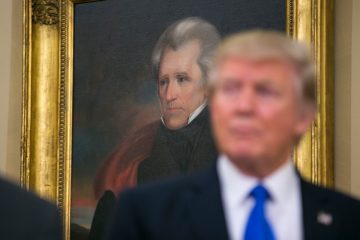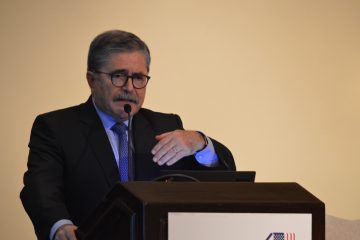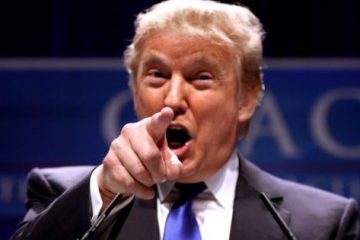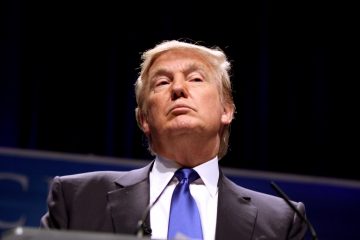How Politicizing the Postal Service Got America in Trouble Before
As the coronavirus continues to spread across the United States, questions concerning American voters’ ability to cast their ballots safely in person on 3 November became increasingly urgent this election season. Despite his own record of voting by mail, President Trump has frequently attacked mail-in voting, making unfounded claims about the potential for fraud and playing favorites to suggest its validity only in states with Republican governors like Florida. Depicting vote by mail as a Democratic tactic to steal his re-election, Trump’s campaign even filed an ultimately dismissed suit in battleground Nevada to stop the state from sending absentee ballots out to all active voters. However, mail-in voting has historically not been such a partisan issue. Even now, Fox News …

WILL HISTORY REPEAT ITSELF WITH PRESIDENT TRUMP’S TRADE WAR WITH CHINA?
The iconic statue of the first American postmaster general Benjamin Franklin greets visitors to the Old Post Office Pavilion in the heart of the US capital: Washington, DC. The edifice is now home to the luxurious and controversial Trump International Hotel on Pennsylvania Avenue at the mid-point between the US Capitol Building and the White House. The hotel webpage invites guests to “share tea” in the Benjamin Bar to discuss “social and economic affairs” as it was the “‘established custom’” in colonial America. It further states that “we agree with Franklin” and delight to “serve tea from China.” The page indicates that Franklin had stated “‘at least a million Americans drink tea twice a day,’” Yet, he was “unable to …

The Rightward Shift of U.S. Foreign Policy Didn’t Start with Trump
The recent confirmation of Mike Pompeo as Secretary of State by the Senate symbolizes that nationalist “hawks” dominate the Republican Party’s foreign policy. Even the famously non-interventionist Republican Senator Rand Paul supported his nomination. Pompeo’s quick and frictionless confirmation points to a shift to the right in what constitutes “common-sense” in US foreign policy. However, as this article will argue such changes in US foreign policy have predated Pompeo’s nomination and even President Trump’s election. Mike Pompeo, who came to Congress with the Tea Party movement in 2010, is an interventionist of the America-First variety. He desires strong sanctions on North Korea, Iran and Russia, supports extra-legal military strikes in areas of jihadist activity, and deeply distrusts China’s economic and …

The Jacksonian Foundations of Trump’s American Foreign Policy
One year has passed since Donald Trump’s inauguration as president and his promise to reorient American foreign policy away from a liberal internationalist agenda to putting “America First.” Since January 2017, the Trump administration has jettisoned major diplomatic achievements of the Obama years – the TPP and the Paris Climate Change Accord. Further, he has called for a revision of the Iran Nuclear Deal and NAFTA, escalated the nuclear standoff with North Korea and threatened to disrupt relations with its long-term allies in Europe and Asia. The main features of the new American foreign policy so far have been: A transactionalist, business-style approach to international bargains, with the aim to negotiate or re-negotiate treaties on more favourable grounds for the …

A Trump in the Tropics? Why a Demagogue became the Leading Contender in Costa Rica’s Upcoming Election
Costa Rica, the longest running democracy in Latin America, will hold its 17th consecutive election on February 4th, 2018. According to the latest opinion polls, the leading contender is the controversial populist Juan Diego Castro. There is a general lack of any candidate receiving overwhelming support, betraying a certain discontent and apathy about the candidates vying for the office of president. From the thirteen candidates in the running, even the five most popular candidates only receive between 5% and 18% of votes; thus, falling far behind the 40% required for a win in the first round. By far, the largest group are those that remain undecided: One in three voters has not made up their minds about which candidate to …

Podcast: Trump’s first 100 days
An analysis of the policy implementation of Donald Trump’s campaign promises in his first 100 days as President of the United States of America. Hailing from New York, Gabriel Delaney studies Politics at Oxford University and has experience as a presidential election field organiser in Pennsylvania for the 2012 Obama campaign. As well as critiquing Trump’s presidency, Gabriel is very good at explaining some of the mechanics of the U.S. political system. This podcast was created and first published by the Wide Open Air Exchange.

“It’s the economy stupid”: Declining labour mobility explains Trump’s victory
Donald Trump’s success in the US elections came as a surprise to both pollsters and political pundits. And since November, both have peddled numerous theories to explain their mistakes. Yet, one aspect of his electoral victory remains underappreciated: labour mobility. Labour mobility across regions is much higher in the United States compared to many other countries in the world, including the European Union members, allocating individuals into the jobs where they are the most productive. As such, mobility is an important factor for upward social mobility for middle class Americans, where they can increase their earnings and their life standards by moving to higher-earning jobs in dynamic regions. [1] But economic mobility has been declining over the last two decades.[2] …

THE NEW “NEW RIGHT” – TRUMP’S POLITICAL EARTHQUAKE
Four decades ago the concurrent Thatcher and Reagan governments heralded the arrival of the “New Right” political agenda, which prioritised market forces over the primacy of “the state” in their respective countries. New Right policies followed in the 1980s, including reducing income and corporate taxes, deregulating labour and financial markets, and the promotion of market mechanisms of consumer choice into public sector services such as health and schools. “Market over state” was the mantra of the New Right but as many commentators noted, making markets requires state action (not least in public order maintenance), resulting in a redeployment of state power rather than its diminishment. Having seized power through the electoral college used to elect the President of the United …









